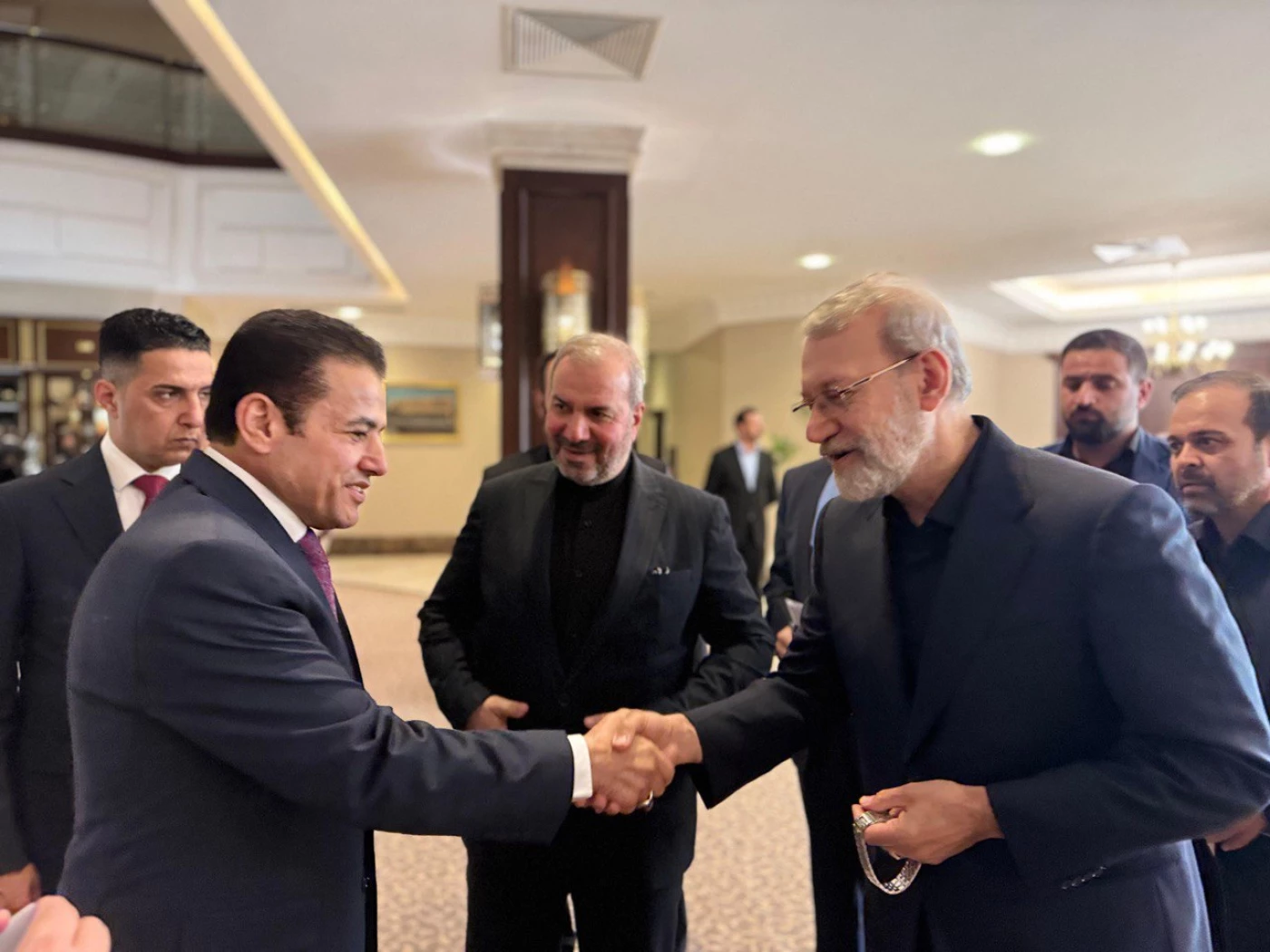ERBIL, Kurdistan Region – The head of Iran’s top security body arrived in the Iraqi capital Baghdad on Monday, where he is set to meet with the country’s top leaders and officials and sign a security agreement between the two neighboring countries.
Ali Larijani, secretary of Iran’s Supreme National Security Council, landed in Baghdad on Monday morning, received by Iraqi National Security Advisor Qassim al-Araji. The visit marks Larijani’s first foreign trip since assuming the position last week.
The pair then visited the memorial site in Baghdad International Airport where Iranian commander Qasem Soleimani and Popular Mobilization Forces (PMF) Chief of Staff Abu Mahdi al-Muhandis were killed in a US strike in January 2020.
Esmail Baghaei, Iran’s foreign ministry spokesperson, said that Larijani will hold consultations on regional developments with Iraqi officials during the trip, and also oversee the signing of a drafted security agreement.
“One of the goals of this visit is to finalize the security understanding between the two countries. The text of this document had previously been finalized and is scheduled to be signed by officials from both countries during this visit,” said the spokesperson.
Answering reporters’ questions before the trip, Larijani said that “there are messages that we will present” during his meetings with Iraqi officials.
Iraq and Iran signed a security agreement in 2023 to address Tehran’s concerns over exiled Iranian-Kurdish armed groups that have sought refuge in Iraqi and Kurdistan Region territories for decades. In September 2023, Iraq announced it had completed the disarmament of the groups and moved their members away from the borders.
Iran has repeatedly stated that there are still some elements of the agreement that need to be fulfilled but noted that both Baghdad and Erbil have been very cooperative in its implementation.
Larijani is reportedly set to meet with Iraqi Prime Minister Mohammed Shia’ al-Sudani, President Abdul Latif Rashid, Parliament Speaker Mahmoud al-Mashhadani, and other notable figures like former Prime Minister Nouri al-Maliki.
Lebanon visit
The Iranian security chief is also set to visit Lebanon after the trip to Iraq.
“In Lebanon, our positions are clear and our view is that national unity is an important issue that must be preserved. Lebanon's independence is always important to us. Increasing trade relations between the two countries is an important issue,” said Larijani.
Lebanese Prime Minister Nawaf Salam last week announced a timeline for pro-Iran Hezbollah to lay down arms before the end of 2025, following mounting pressure from Washington for the group’s disarmament.
Salam said the decision is part of the state’s duty to “monopolize the possession of weapons.” Hezbollah described the government’s decree as “a grave sin,” saying it would “deal with it as if it does not exist.”
Iranian Foreign Minister Abbas Araghchi said that this is not the first time that efforts have been made to disarm Hezbollah, adding that any such decision will only be made by Hezbollah itself, while noting “we provide our support from afar, but we do not interfere in their decision-making.”
Ali-Akbar Velayati, a senior foreign policy advisor to Iran’s Supreme Leader Ali Khamenei, on Saturday said that disarming Hezbollah is a policy dictated by the US and Israel, describing it as “a dream which will never come true.”
The Lebanese foreign ministry condemned Velayati’s comments as “a flagrant and unacceptable interference in Lebanon’s internal affairs.”
“The Ministry reminds the leadership in Tehran that Iran would be better served by focusing on the issues of its own people and addressing their needs and aspirations, rather than involving itself in matters that do not concern it,” read the statement.
The Lebanese army on Saturday said that six soldiers were killed in a blast “while an army unit was inspecting a weapons depot and dismantling its contents” near the Israeli border. An unnamed military source told AFP that the blast took place “inside a Hezbollah military facility.”



 Facebook
Facebook
 LinkedIn
LinkedIn
 Telegram
Telegram
 X
X


